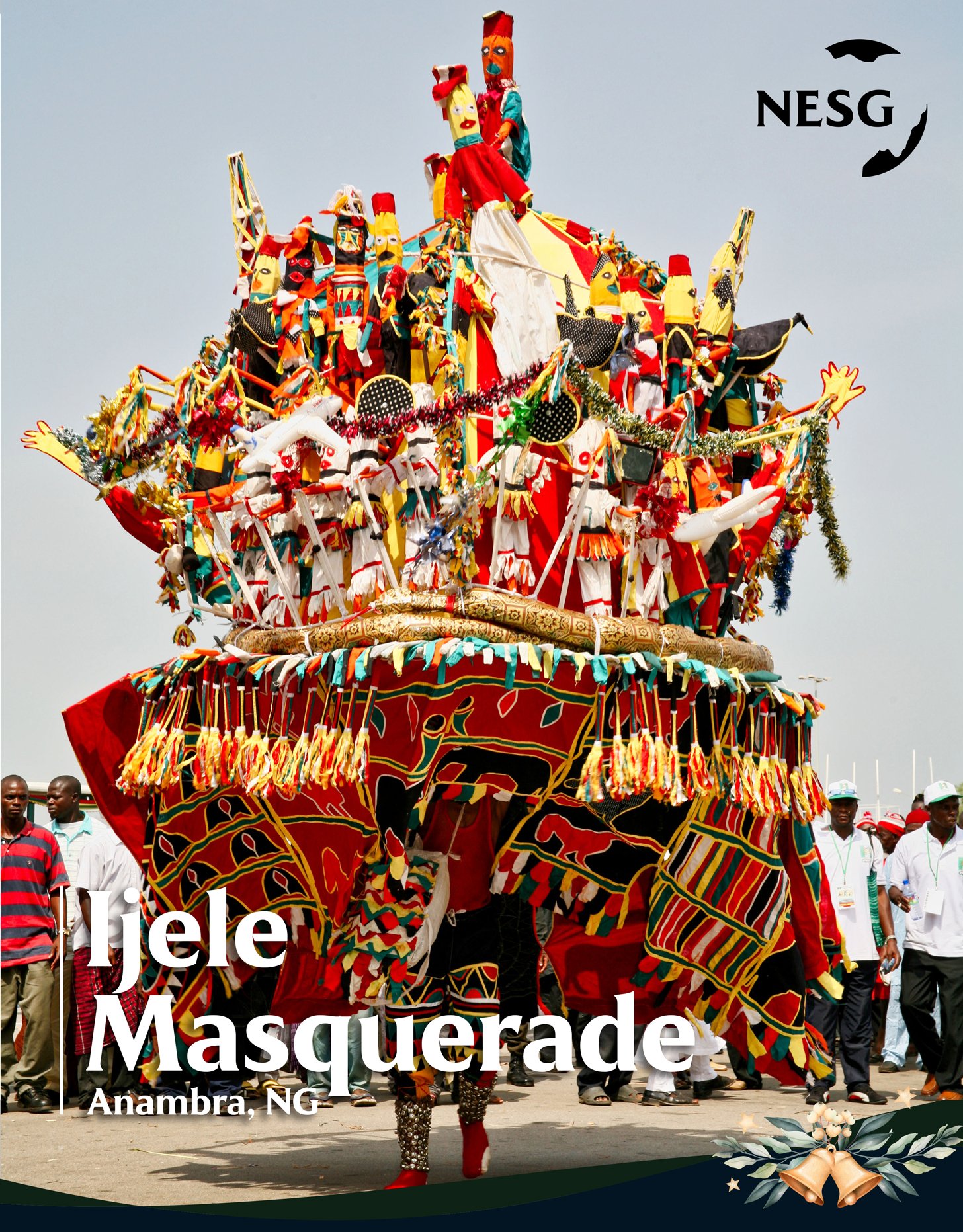Ijele: The King Of Masquerade

Ijele, the King of Masquerades, originates from the old Anambra State in Igboland many centuries ago is not in doubt. According to a recent commentary by UNESCO, Ijele's origin can be traced back to Umueri, who introduced the first "izi egwu ijele" (introduction of the Mask) to other communities like Aguleri, Nsugbe, Nando, Ọkụzụ, and more. The Umuatuolu Umueri played a significant role in introducing the Ijele masquerades to Igbariamu, Nteje, and other Villages outside the Omabala areas.
Ijele is a special masquerade in Anambra and Enugu State, Nigeria. It is the King of all Masquerades and as such has 45 different other masquerades perform on top of it in the olden days. Presently, the 45 masquerades are represented by the 45 figurines seen on top of Ijele. The myth and size of Ijele is wholesome as every aspect of life is depicted on Ijele. It is the climax of all masquerades hence performs alone and mostly last.
Preparing the costume for the largest masquerade in West Africa is a laborious process that involves around 100 men and takes approximately six months.
Recognized as an intangible cultural element in need of urgent safeguarding, the King of Masquerades holds a significant place in the UNESCO archives.
In many communities in the state of Anambra in south-eastern Nigeria, the Ijele masquerade is an important part of celebrations, burial ceremonies, and other special occasions during the dry season. It is performed to invoke fertility and a bountiful harvest. The mask, standing at around four meters tall, is so large that it requires a hundred men to prepare the costume and construct an outdoor house for it before a performance. Divided into upper and lower segments by a large python at the center, the Ijele is made using colorful fabric on a bamboo skeleton and adorned with figurines and depictions of various aspects of life. This towering masked figure dances at the climax of a series of other masquerades, guarded by six 'police' and carrying a mirror believed to possess the power to draw in and punish wrongdoers. The carriers of the Ijele mask, chosen by ballot, go into seclusion for three months and follow a special diet to acquire the necessary strength to wear the mask. The masquerade serves multiple important roles within the community, including spiritually marking joyous and solemn occasions, providing an opportunity to demonstrate loyalty to a chief or king, and offering popular entertainment as young boys and girls sing and dance to the tunes of Akunechenyi music.
 Igbo Language & Culture
Igbo Language & Culture